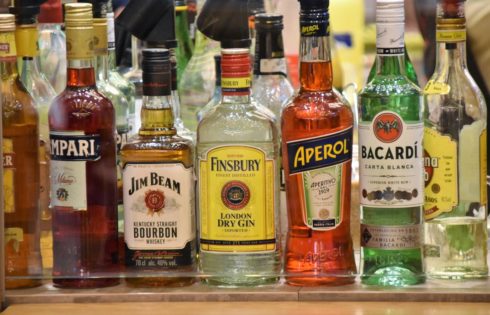South Africa has banned the sale of alcohol to prevent people from contracting and spreading COVID-19.
Coronavirus is spreading rapidly in South Africa, a development that has prompted officials to announce a host of new measures and restrictions. The country now accounts for about 40 per cent of all coronavirus cases on the African continent, and the virus is spreading rapidly.
On Sunday, a visibly irate President Cyril Ramaphosa addressed his people, begging them to adhere to rules meant to limit in-person contact – and, critically, banning all alcohol sales and imposing a national curfew.
Nearly four months ago, Ramaphosa announced a state of disaster and placed South Africa into one of the world’s most restrictive lockdowns, with temporary bans on alcohol and tobacco, and strict measures curbing movement and travel.
Now, 18 weeks after the virus hit South African shores, the normally calm president addressed his nation with a stern countenance:
“There are some amongst us who continue [to] ignore the regulations that have been passed to combat the disease. They also act without any responsibility to respect and protect each other. In the midst of our national effort to fight against this virus, a number of people have taken to organizing parties, who have drinking sprees, and some who walk in crowded spaces without the protection of masks,” he said.
Ramaphosa blamed the sale of alcohol for much of the status quo, announcing a total ban and curfew.
“The sale, the dispensing and the distribution of alcohol will be suspended with immediate effect. There is now clear evidence that the resumption of alcohol sales has resulted in substantial pressure being put on hospitals, including trauma and ICU units …. Most of these occur at night. Therefore, as an additional measure to reduce the pressure on hospitals, a curfew will be put in place between the hours of 9 pm and 4 am,” Ramaphosa said.
Health department data support the dangers posed by alcohol consumption in South Africa, with Health minister Zweli Mkhize linking the alcohol ban to a decrease in motor accidents and stabbings.
Nevertheless, as Monday dawned, Ramaphosa was hit with swift political blowback. In a statement, opposition leader John Steenhuisen said the ban and curfew “distract from the real issue: the utter failure to build treatment and testing capacity.”
Alcohol industry associations also weighed in, complaining they were given no advance notice about the sudden prohibition and warning that the industry’s one million workers could suffer.
For Johannesburg wine shop owner Jonah Naidoo, Monday morning was a rude awakening. His small boutique wine shop already suffered a major hit during the first two months of the lockdown, when it was completely shuttered. His shop will faithfully follow the new restrictions, he says — but the prohibition raises some serious questions about how — and whether — he can stay afloat.
“It was a wake-up to a hard, hard cold reality of ‘how do we kick-start again? What do we say to the staff? How do we use the staff over this time? How do we keep them busy?’ Those are the big questions on our minds,” Naidoo said.
And, he argued the ability to purchase alcohol legally deters from it being sold illicitly. Anecdotal research shows that illicit sales boomed during the initial two-month lockdown, and hospital administrators noted a rise in hospitalizations and deaths from home-brewed alcohol.
With nearly 280,000 cases — and more than 10,000 new cases a day — everyone agrees: these are tough times in the Rainbow Nation. That’s something Ramaphosa acknowledged at the end of his speech: “We will weather this storm,” he said. “We shall overcome.”
-The Observer


